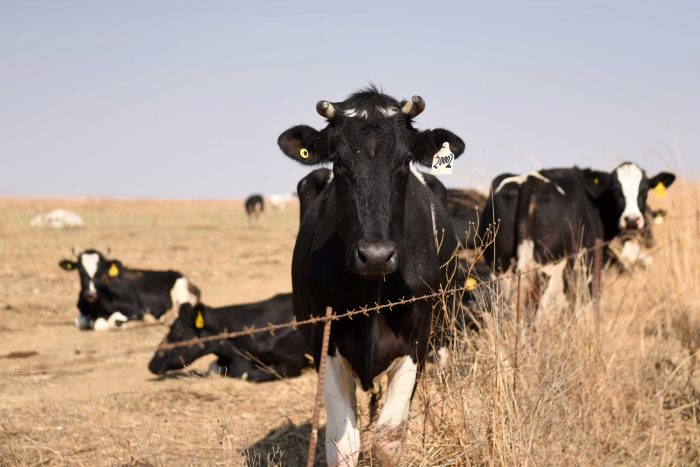The intended beneficiaries of the project have no legal recourse today because they were never added to a partnership agreement.

The intended beneficiaries of the Estina dairy farm project have no legal documentation to prove they are beneficiaries and therefore, no legal recourse.
This was according to state capture inquiry evidence leader, advocate Leah Gcabashe, who grilled former Free State Department of Agriculture head, Peter Thabethe, on the failed project.
The commission was discussing a partnership agreement between Estina and the department. However, the beneficiaries were not part of the agreement.
At the time the agreement was signed, they had already identified the land but had not yet gone through the formalities of acquiring the land.
Gcabashe remarked that the intended beneficiaries have no legal recourse today because of this. In addition, they have no legal documentation to show the intention to make them beneficiaries of the project.
“They have no legal recourse as beneficiaries. They did not when you were there in June 2012, today they do not have a legal document that makes them beneficiaries.”
Thabethe said that although the intention was indeed there, it was too early in the project to start this process.
He added that the department had requested Estina to create a shell company and register it in the names of the beneficiaries.
This was never done, but the company – Zayna Investments – was created.
“The intention was correct, but we did not get there,” he said.
However, Gcabashe pressed him: “When I look at the face of this document, the only beneficiary here is Estina because it is the registered company that is in business with the department of agriculture.”
However, Thabethe did not agree with this. He said the intention was there, but the project stalled before they could realise it.
It is alleged that about R200 million in taxpayers’ money, which was meant for the farm and empowering rural farmers, was instead funneled to the Gupta family and their lavish 2013 Sun City wedding.
As such, after its establishment, 100 black emerging farmers were promised five cows each but never received them.
The commission explored the complex details of implanting agents, in this case, Estina. Thabethe said the department would transfer the money for the project to the implementing agent to implement the project on behalf of the department.
The bidding processes stipulated in the department’s supply chain management policy, did not have to be abided by in this case, Thabethe said.
Instead, he added there were reporting mechanisms that the implementing agent had to follow.
The commission has been traversing the department’s supply chain management policy in preparation for discussing irregularities in the establishment of the Estina dairy farm.
Shortfalls in the compliance of the project with supply chain management policies meant millions in taxpayer money was being funneled away from those it was intended for.
For more news your way, download The Citizen’s app for iOS and Android.






